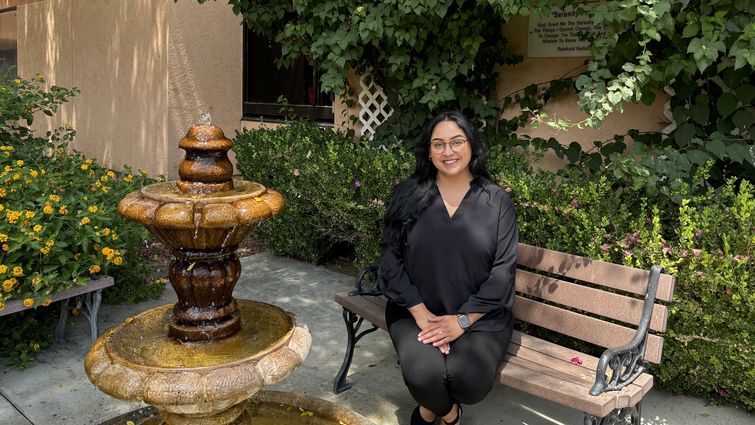

Facing addiction can be an overwhelming and isolating experience. Many individuals may attempt to confront their struggles independently, believing that sheer willpower and determination will be enough to overcome their challenges.
However, Paola Vidauri Luna, LMFT, Clinical Therapist II in the Substance Abuse and Recovery Program at the Loma Linda University Behavioral Medical Center, emphasizes the dangers of this approach, highlighting the critical role that professional support plays in breaking free from addiction.
“Therapy helps individuals explore and uncover underlying causes of addiction in a safe, supportive, and professional environment,” Vidauri Luna says.
Although addiction can be challenging to navigate, therapy is crucial in overcoming it and offers a more promising path to avoiding relapse than going through the process alone.
Why recovery is best done in a professional setting
Addiction recovery is often best done with professional therapists because it provides a structured, supportive environment where individuals can access specialized, evidence-based care. However, there are several factors for why an individual might resist therapy, including:
-
Stigmas: fear of being judged or labeled an addict
-
Denial: not accepting the severity of the addiction
-
Fear: concerns of failure or relapses
-
Separation: being away from family or taking off work
-
Reluctance: hesitation to change familiar routines
While these factors are valid, Vidauri Luna warns against attempting addiction recovery alone.
“Unfortunately, it rarely works,” she says. “Before entering therapy, many people have already tried and failed to break addiction habits on their own. It’s important to remember that seeking help is okay because successful recovery takes a village,” Viduari Luna says.
However, seeking help does not mean turning to trendy social media videos or self-help books. While those resources can initially provide some support, rarely can they solve the underlying problems of addiction.
Additionally, individuals will want to talk to their loved ones instead of professional therapy. While talking to family and friends is okay, Viduari Luna warns that sometimes advice from non-professionals can hurt more than help.
“Seeking professional help means therapy remains unbiased –– something a family member cannot do,” she says.
Friends and family often advise from the perspective that the individual with the addiction is a problem that needs fixing. In contrast, therapy explores and dissects the root of the cause that created the addiction in the first place.
Is my addiction serious enough for therapy?
Determining whether an addiction warrants therapy depends on several factors, including how the addiction affects an individual's life, relationships, and well-being. Vidauri states that when addiction starts affecting any area of your life — social, financial, educational, or psychological — it's time to seek professional help.
“There can be a lot of resistance to therapy because individuals will learn that what they thought was normal is actually dysfunctional, which can lead to denial,” Vidauri Luna says. “This sort of mindset is a major reason why someone might avoid therapy or even convince themselves their addiction is not serious enough for rehabilitation.”
However, when someone downplays their addiction by believing it's not as serious as others or that they're not causing harm, it only delays them from seeking the necessary help they need.
What to expect with therapy
Starting out, Vidauri Luna acknowledges that therapy can be an uncomfortable and vulnerable experience.
“There might be things you don’t want to share,” she says on people’s reluctance to individual and group therapy. “But once the resistance is gone and a person’s authentic self comes out, the healing process can truly begin, which is beautiful,” Vidauri Luna says.
An essential aspect of therapy and recovery is learning to express genuine feelings instead of hiding them. Rather than suppressing emotions or repeatedly saying, "I'm fine," a professional therapist can guide patients through their discomfort, helping them achieve the insights needed for successful recovery.
“Although someone may initially approach therapy with resistance and denial, as healing progresses, they often begin sharing their own stories to encourage others just starting their journey, which is how a supportive village begins to take shape," Vidauri Luna says.
Therapy is a vital step in addiction recovery. If you or a loved one struggles with addiction, our team of experienced professionals are dedicated to providing compassionate, personalized care to help you overcome your challenges and achieve lasting recovery. Call us today at 909-558-9275 or visit us here.


